Register for the event –>
Registration is now open for the Triangle Digital Humanities Institute on Digital Pedagogy
Registration link: http://bit.ly/tdhi-ped
Hashtag: #tdhipedagogy
Full schedule below:
Location:
Ahmadieh Family Lecture Hall and other locations
Smith Warehouse, Bay 4, 1st Floor
114 S. Buchanan Blvd.
Durham, NC 27708
Morning & Early Afternoon
Smith Warehouse, Ahmadieh Family Lecture Hall, Bay 4, C105
8:45AM Coffee
9:00AM Welcome
9:15AM Featured Presentation I – This session will be livestreamed & recorded
Katherine Mary Faull (Professor of German Studies and Comparative Humanities, Bucknell University)
Diane Jakacki (Digital Scholarship Coordinator, Bucknell University)
“Why Teach DH?”
10:15AM Break
10:30AM Lightning Presentations – This session will be livestreamed & recorded
- Kristen Foote (Digital Integration Coordinator, Carolina Digital Humanities, UNC-CH) & Elizabeth Manekin (Head of University Programs and Academic Projects, Ackland Art Museum)
- Paul Jaskot (Professor of Art, Art History & Visual Studies and Director of the Wired! Lab for Digital Art History & Visual Culture, Duke)
- Hérica Valladares (Assistant Professor of Classics, UNC-CH)
- Kathryn Wymer (Associate Professor, Language and Literature, NCCU)
11:15AM Break
11:30AM Featured Presentation II – This session will be livestreamed & recorded
Anne Kelly Knowles (McBride Professor of History, University of Maine)
“Teaching Geographic Awareness through Critical Cartography”
12:15PM Lunch
1:30PM Roundtable Discussion: FHI-NCCU Digital Humanities Fellows – This session will be livestreamed & recorded
- Lenora Z. Helm Hammonds (Assistant Professor of Music, NCCU)
- Matthew A. Cook (Professor of Postcolonial and South Asian Studies, NCCU)
- Carolyn “Collie” Fulford (Associate Professor of Language and Literature, NCCU)
- Kathryn Wymer (Associate Professor of Language and Literature, NCCU)
- Moderator: Victoria Szabo, Associate Research Professor in the Department of Art, Art History, and Visual Studies, Duke
2:00PM Break
Afternoon
Workshop locations will be in Bays 4 & 5 of Smith Warehouse (FHI). Specific locations will be announced on the day.
2:30PM Workshop Session I
Breaking down the Digital Assignment: Disciplinary and Methodological Approaches
Jennifer Ahern-Dodson (Assistant Professor of the Practice in the Thompson Writing Program, Duke)
Edward Triplett (Instructor of Art, Art History & Visual Studies, Duke)
This workshop will offer two examples of digital assignments developed for courses in different humanities disciplines using a range of digital methods: one centered on visualization and the other on uses of social media and news media analysis. Participants will see examples from education and writing, as well as architectural history courses and will have the opportunity to engage with the workshop facilitators around the nuts and bolts of creating digital assignments.
Copyright and Scholarly Communications in the Classroom
Will Cross (Director, Copyright & Digital Scholarship Center, NCSU)
Anne Gilliland (Scholarly Communications Officer, UNC-CH)
David Hansen (Associate University Librarian for Research, Collections and Scholarly Communication, Duke)
This workshop will cover some of the basics of using copyrighted materials in the DH classroom and in DH course assignments. We will use hands-on examples to explore the limitations on the scope of copyright protection, when fair use may apply, and how to think about contractual terms of use, such as those that cover text and data mining.
From Product to Process: Creating Student-Centered Learning Objectives for Digital Projects
Claire Cahoon (Carolina Academic Library Associate, UNC-CH)
Sarah Morris (Humanities Research & Digital Instruction Librarian, UNC-CH)
This workshop will focus on distilling student-centered learning objectives from tool-centric classroom project plans. Creative assignments can be exciting for librarians and instructors, but sometimes they leave students in the lurch. As a group, we will discuss and practice designing goals for digital assignments that focus on the process of learning, teaching, and building instead of the final product. Come explore student-centered digital pedagogy with us!
3:30PM Break
3:45PM Workshop Session II
Designing an assignment using ESRI Story Maps / StoryMapJS
Erica Hayes (NCSU Libraries Fellow, NCSU)
Mia Partlow (NCSU Libraries Fellow, NCSU)
In this workshop, you will learn how you can use Esri Story Maps and StoryMapJS to design assignments in which students combine maps, images, and text to construct spatial narratives. We’ll discuss approaches to guiding students through the technical learning process so the storytelling component doesn’t get lost, how to use these platforms to their full potential, and how to choose a story map template that fits the learning outcomes for your course. We’ll share our activity guides and files for three story map templates.
Evaluating Students’ Digital Projects
Beth Fischer (Digital Project Coordinator, NHC/Duke)
Adrian Linden-High (PhD Candidate in Classical Studies, Duke)
Digital projects can be difficult to assess, especially in classes that are not primarily devoted to teaching specific technologies. This workshop covers best practices and offers some tips for creating and using rubrics and scoring guides for digital projects, as well as ideas for structuring assignments to make assessment faster and feedback more effective.
Access to Technology and Pedagogical Approaches to Scaffold Student DH
Desiree Dighton (PhD Candidate in Communication, Rhetoric, and Digital Media, NCSU)
Grant Glass (PhD Candidate in English & Comparative Literature, UNC-CH)
This workshop will help participants consider access to available software in various institutional settings by briefly highlighting student DH projects at UNC, Duke, NCSU, and Shaw University. Perhaps more importantly, facilitators will question the underlying assumption upon which much DH classroom practice relies: students learn by digital “making.” While this concept is not a fully developed pedagogical approach, there is a way that critical making can develop critical thinking skills in new domains. Facilitators will guide participants in considering the learning outcomes they hope to achieve with specific DH projects and how to scope their projects to their students and institutions. Participants will begin to create activities and resources to support these goals, which, although perhaps involving technologies, will focus primarily on student learning rather than on experimentation with particular technologies.
4:45PM Break
5:00-5:30PM Institute Recap & DHI Week Launch (Reception)
